In the face of rising COVID cases and the second wave of the pandemic, it was announced that all adults in India, above 18 years of age, will now be able to receive the COVID vaccine.
This coronavirus vaccine update has been welcomed by both the healthcare industry as well as the common people. At this juncture, if more and more people get vaccinated, it would be easy to bring the second wave under control and reduce the severity of the predicted third wave.
Phase 1 of the COVID vaccination plan included all people above age 60 as well as people with comorbidities who were allowed to apply for the vaccine. Phase 2 covered everyone aged 45 years and above. Phase 3 is rolling out since the 1st of May. All legal adults (18 years and above) will now be able to register themselves as beneficiaries of the COVID vaccine. Walk-in vaccination has also been allowed now i.e. a person can go to the vaccination centre directly without prior registration or appointment on a digital platform.
The nationwide vaccination drive has now been taken up by the central government. The centralised free vaccination policy has now begun, under this the government will provide free COVID-19 vaccine to all Indian citizens above 18 years of age and the Centre would procure 75 percent of vaccines and give them to states for free distribution to all citizens above the age of 18. This will speed up the procurement procedure.
Private hospitals will receive 25% of vaccines which can be availed after the required payment by the eligible candidates.
Even after you get the COVID vaccine, you must not stop following the COVID protocol. Wearing masks and sanitizing will continue to be important parts of your daily routine because the coronavirus is constantly evolving and new strains could arrive against which our vaccines might not be as effective. Another great way to stay safe is to boost your immunity while staying home.
It is not yet known how long the COVID vaccines will be effective. Unless we have a few more answers, COVID vaccines and precautions will together keep you safe.
Have you taken your shot of vaccination? If yes, then take good care of your health!
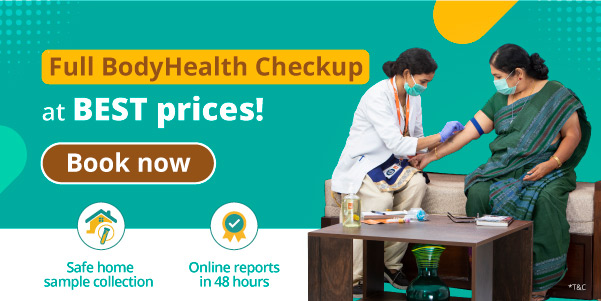
Disclaimer: The information provided here is for educational/awareness purposes only and is not intended to be a substitute for medical treatment by a healthcare professional and should not be relied upon to diagnose or treat any medical condition. The reader should consult a registered medical practitioner to determine the appropriateness of the information and before consuming any medication. PharmEasy does not provide any guarantee or warranty (express or implied) regarding the accuracy, adequacy, completeness, legality, reliability or usefulness of the information; and disclaims any liability arising thereof.
Links and product recommendations in the information provided here are advertisements of third-party products available on the website. PharmEasy does not make any representation on the accuracy or suitability of such products/services. Advertisements do not influence the editorial decisions or content. The information in this blog is subject to change without notice. The authors and administrators reserve the right to modify, add, or remove content without notification. It is your responsibility to review this disclaimer regularly for any changes.
India has been vaccinating lakhs of people since March. Very soon, vaccines will be available for everyone above 18 years, irrespective of age groups or comorbidities. This brings us to hope at a time when COVID-19 has reared its ugly head again.
What comes as a piece of even more interesting news is that a new kind of medication may soon hit the markets. It’s called the intranasal vaccine for COVID-19.
So what is the intranasal COVID-19 vaccine, can it be trusted and should you opt for it? Let us answer all your questions.
Intranasal vaccine for COVID-19 is a type of nasal spray/drop like the kind you use when you have a clogged nose. The formulation, of course, is different.
The nasal mucous is the first line of defence and hence very immuno-efficient. Viruses have to breach this wall to enter your body and that is why this membrane is always on high alert. Studies have found that a small dose of antigen delivered into the nasal mucosa can trigger a rapid and powerful immune response.
So, scientists have formulated the intranasal COVID vaccine. You have to pour a drop or spray into each nostril to help generate antibodies to fight the coronavirus.
First of all, it can be administered by the individual. Secondly, the intranasal vaccine is noninvasive and is not meant to be injected. Also, the intranasal vaccine can boost broad immune response. It is essential to stop both the infection as well as transmission of COVID-19. It is suitable and safe for children and eliminates the risk of needle-related infections and pain. Intranasal vaccines can also be produced in larger batches than other forms of COVID vaccines.
The intranasal vaccine can neutralize and generate a quick immune response at the mucosal membrane and stop the further spread of the virus.
Until the intranasal vaccine is made available, continue to maintain all possible COVID precautions. Wear masks, sanitize your hands and try to maintain social distancing. If you are a senior citizen or have comorbidities, consider getting vaccinated as early as possible.
Take a shot and stay fit.
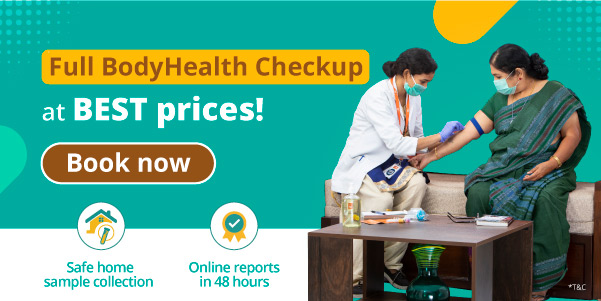
Disclaimer: The information included at this site is for educational purposes only and is not intended to be a substitute for medical treatment by a healthcare professional. Because of unique individual needs, the reader should consult their physician to determine the appropriateness of the information for the reader’s situation.
Everyone today is aware of the symptoms of COVID-19. Hence, at the first sign of cough, fever, sore throat, diarrhoea and body ache, people ask their doctors if they should get tested for COVID-19. Until the results arrive, it is natural to be in a state of anxiety. But once the report is delivered and it says you are COVID negative, you may breathe a sigh of relief.
But actually, it may be too early to celebrate. Of late, instances of false COVID reports are on the rise. Here’s what you need to know.
A false negative means your test result has come back negative but the report is false. You may have COVID-19. A false negative is disruptive to the process of fighting the pandemic. The patient will not receive the appropriate care at the right time and his/her family too will be exposed.
The PCR tests determine whether you have COVID-19 or not. These tests were designed soon after the pandemic struck. The PCR tests are not equipped to detect the mutated coronavirus such as the super-infectious UK virus, South Africa virus or Brazil virus. The virus has changed its composition and thus may sometimes go undetected in the test result. Human error!
The number of tests being done everyday numbers in lakhs. This magnitude of testing is unprecedented. Laboratories are overwhelmed and technicians are working overtime to deliver results on time. In such circumstances, human error cannot be ruled out. Samples can get mixed out or there may be errors when the report is printed. Such errors are rare but not unheard of.
If you get tested during the incubation period of the virus, a COVID test will possibly not show traces of coronavirus in your system. That is why people are advised to get re-tested if the doctor suspects that the result is a false negative.
PCR test samples are collected with a Q-tip or cotton bud which is inserted into the nasal passage or down the throat to collect your mucus. These regions are where the virus replicates itself most profusely. But if the test isn’t administered properly and the right amount of mucus isn’t collected, the analysis of the sample would be incorrect.
If you are positive that you have been exposed to a person with COVID or if you have all the classic symptoms of COVID-19 and yet you get a false negative, ask your doctor if you should opt for a second test. Stay isolated in your home until you get more clarity on the situation.
COVID-19 is evolving and becoming more unpredictable. Even if you are vaccinated, do not relax the precautionary measures such as wearing masks, sanitizing and going out only when necessary.
Don’t panic just get yourself checked up.
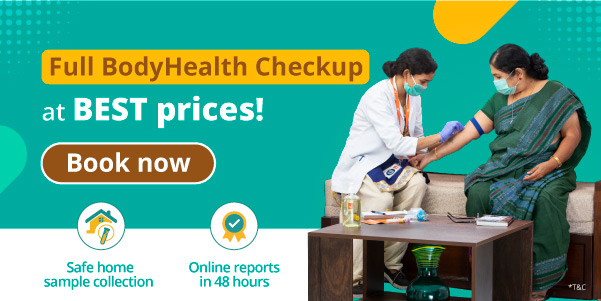
Disclaimer: The information included at this site is for educational purposes only and is not intended to be a substitute for medical treatment by a healthcare professional. Because of unique individual needs, the reader should consult their physician to determine the appropriateness of the information for the reader’s situation.
The number of active cases of COVID-19 has been steadily reducing since late September 2020 and it was then that most public places, schools, colleges and offices began opening their doors for regular operation.
Despite this, COVID protocols were being maintained with the utmost scrutiny in all such public places. As of February 2021, more than half of all the Indian states reported that there was not a single death due to COVID-19 and this ushered in some much-needed hope.
However, recent studies conducted by scientists at Delhi, using a mathematical model have examined that cases will be at a peak around 20th April 2021.
Leading Indian scientists from the most renowned institutes and research centres have suggested that 2 distinctive factors can be used to trace this sudden and sharp rise of active cases in India.
In the case of a coronavirus variant, it may take time for the mutated virus to spread, depending on how contagious it is. A very transmissible variant such as delta can cause a faster acceleration in new cases leading to waves.
Dr. M.G. Kartheeka, MBBS, MD
With such a sharp rise in new cases of COVID-19, the states of Maharashtra, Karnataka, Tamil Nadu, Delhi, Haryana and Uttar Pradesh have been marked to be high-risk states that are already experiencing the effects of the Second Wave.
Despite the rapid testing and the extensive vaccination drives undertaken by the government, the daily caseload of infected people is averaging at around 55,000 as opposed to the few couple thousand last year.
The second wave of Covid was more severe than the first wave and is attributed majorly to insufficient vaccinations and human behaviour of not following covid appropriate behaviour. Following appropriate measures for Covid will be very essential to prevent any further outbreaks.
Dr. Ashish Bajaj – M.B.B.S, M.D.
Many states like Gujarat, Maharashtra, Haryana and Punjab have been counting the number of cases peaking either equal to or more than their earlier records from the previous year. Although states like West Bengal, Andhra Pradesh, Bihar and Uttar Pradesh are likely to be still in the infant stages of the Second Wave, state governments have ramped up their testing and inoculation drives. Scientists expect this Second Wave to last more than 2 or 3 months, given the progress of vaccinations of a population that is 1.3 billion strong.
Manindra Agarwal of IIT Kharagpur who is famous for pioneering the ‘Super Model’ has stated that this Second Wave is most likely to see a sharp fall following April. Nevertheless, taking comfort in the low death rates is not the way to go and we should all follow the stipulated COVID protocols whenever venturing out.
With these alarming situations around, take good care of your health with regular checkups through PharmEasy!
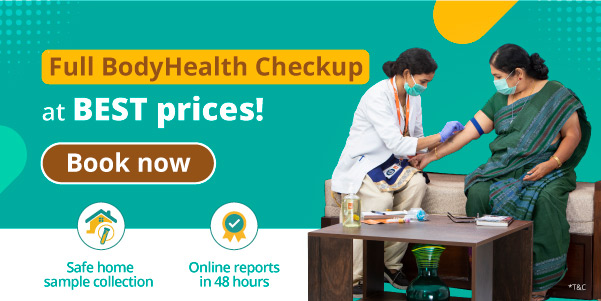
Disclaimer: The information provided here is for educational/awareness purposes only and is not intended to be a substitute for medical treatment by a healthcare professional and should not be relied upon to diagnose or treat any medical condition. The reader should consult a registered medical practitioner to determine the appropriateness of the information and before consuming any medication. PharmEasy does not provide any guarantee or warranty (express or implied) regarding the accuracy, adequacy, completeness, legality, reliability or usefulness of the information; and disclaims any liability arising thereof.
Links and product recommendations in the information provided here are advertisements of third-party products available on the website. PharmEasy does not make any representation on the accuracy or suitability of such products/services. Advertisements do not influence the editorial decisions or content. The information in this blog is subject to change without notice. The authors and administrators reserve the right to modify, add, or remove content without notification. It is your responsibility to review this disclaimer regularly for any changes.
The steadily rising numbers of COVID-19 cases throughout the country has become a cause of concern for the Ministry of Health and Family Welfare. Although this rise in daily cases has not been consistent throughout the country, certain states like Maharashtra, Punjab, Gujarat, Madhya Pradesh, Kerala and Karnataka have experienced a massive spike in numbers.
This has forced these state governments to resume strict COVID-19 protocols and preventive measures. Along with placing increased restrictions on gatherings in public places like shopping malls and parks, these states have also enforced the Test-Track-Treat Protocol to help flatten the curve once again.
The renewed surge in COVID-19 cases in several Indian states has resulted in the reinforcement of the Test-Track-Treat Protocol that can help curb the rapid spread of the virus. The need for the Test-Track-Treat Protocol has become even more significant and observing strategies for demarcating containment zones has also become necessary at the micro-level.
Along with the Test-Track-Treat Protocol, state governments have also marked public places as the main cause of the rapid spread of the virus.
The Delhi government has reported a total of 6,49,973 active cases of COVID-19 as of 24th March 2021. This resulted in the Delhi government placing malls, cinema halls, indoor auditoriums and metro stations under the tags of ‘Super Spreader Zones’. The government of Delhi also declared that massive randomized testing for the virus is to be conducted in these zones to identify active cases and quarantine them for treatment. Law enforcement authorities in Delhi have also been instructed to prevent public gatherings during the upcoming festivals of Holi, Shab-e-Baraat and Navratri.
Since the beginning of 2021, the country has not recorded such a rise in the number of cases as has been recorded in the last few days, indicating an unprecedented spike in the spread of the virus. As a result, these 5 states have placed a ban on public gatherings during festivals like Holi:
In the wake of such an alarming rate of increase in infected cases, amping up the vaccination drive has become one of many solutions. Union Minister Prakash Javadekar has urged all Indians above the age of 45 years to get vaccinated with the COVID-19 vaccine regardless of comorbidities since it is an effective preventive measure.
With the multi-pronged approach of the Indian Government with regards to increasing the intensity of the ongoing vaccination drives and placing strict restrictions in containment zones, there is hope for the country to return to normal. Placing bans on public gatherings may seem extreme even in 2021 but measures like these are a necessary evil needed to fight for the greater good.
Also Read: COVID-19 Cases Less Than Three Lakhs After A Month In India
Are you aware of your current health status?
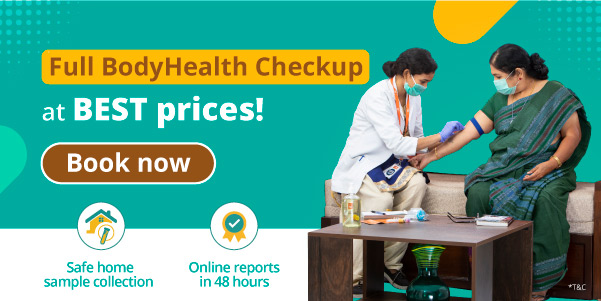
Disclaimer: The information provided here is for educational/awareness purposes only and is not intended to be a substitute for medical treatment by a healthcare professional and should not be relied upon to diagnose or treat any medical condition. The reader should consult a registered medical practitioner to determine the appropriateness of the information and before consuming any medication. PharmEasy does not provide any guarantee or warranty (express or implied) regarding the accuracy, adequacy, completeness, legality, reliability or usefulness of the information; and disclaims any liability arising thereof.
Links and product recommendations in the information provided here are advertisements of third-party products available on the website. PharmEasy does not make any representation on the accuracy or suitability of such products/services. Advertisements do not influence the editorial decisions or content. The information in this blog is subject to change without notice. The authors and administrators reserve the right to modify, add, or remove content without notification. It is your responsibility to review this disclaimer regularly for any changes.
The second phase of the vaccine drive against COVID-19 has already begun in India earlier this month. This phase is set to cover more than 10 crore people across the nation who are above the age of 60 years. The second phase also includes vaccinating people aged more than 45 years who are living with comorbidities against the novel coronavirus. The second phase has been welcomed with more positivity.
Many of the people who have received the vaccine think that immunity against the virus means they no longer need to wear a mask in public places and gatherings. However, this is a misconception as the COVID-19 vaccines do not guarantee that a person cannot be a carrier of the virus. There is a sudden rise in the number of COVID-19 cases in India and health officials are anticipating a second wave of the virus.
Since February 2021, the cases of COVID-19 have been steadily rising in states like Punjab, Maharashtra, Haryana, Madhya Pradesh, and Kerala. The curve began to pick up even in regions where a vaccination drive had already taken place. To flatten the suddenly rising curve, administrations of cities like Nagpur, Pune, Nasik, as well as governments of states like Punjab and Uttarakhand have imposed lockdowns and night curfews once again.
The government is continuously urging the people to sign up for the vaccination drives in an attempt to flatten the curve. However, after receiving the vaccine it is still necessary to observe COVID-19 protocols because vaccinated people could still have a chance of being carriers of the virus. Until all the people of the country have received the vaccine, it is wise to still mask up and regularly wash hands for the safety of those around you.
Get vaccinated and stay fit!
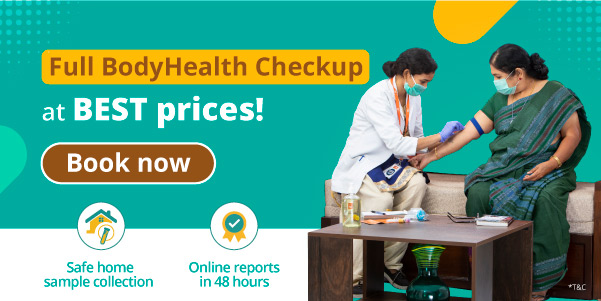
Disclaimer: The information provided here is for educational/awareness purposes only and is not intended to be a substitute for medical treatment by a healthcare professional and should not be relied upon to diagnose or treat any medical condition. The reader should consult a registered medical practitioner to determine the appropriateness of the information and before consuming any medication. PharmEasy does not provide any guarantee or warranty (express or implied) regarding the accuracy, adequacy, completeness, legality, reliability or usefulness of the information; and disclaims any liability arising thereof.
Links and product recommendations in the information provided here are advertisements of third-party products available on the website. PharmEasy does not make any representation on the accuracy or suitability of such products/services. Advertisements do not influence the editorial decisions or content. The information in this blog is subject to change without notice. The authors and administrators reserve the right to modify, add, or remove content without notification. It is your responsibility to review this disclaimer regularly for any changes.
The Government’s COVID-19 vaccination initiative for all people over the age of 60 and everyone in the age-group 45-59 who have comorbidities is well underway. This is the second phase of vaccination and it has already been resoundingly successful. Lakhs of people are getting vaccinated. This fills us all with hope and optimism.
Vaccination is the only way that we can defeat the COVID-19 menace. That means once everyone gets vaccinated, not only will everyone be safe, but the economy too will be rejuvenated. Lives will return to normalcy.
That is why everyone who takes the COVID 19 vaccine is helping India reach safety. Every vaccinated person is a Superhero who is helping the country win the war against COVID-19. Every vaccination means a reduction in the possibility of the transmission of COVID-19.
PharmEasy salutes the effort of every state government in bringing the much-needed COVID-19 vaccine to this vulnerable segment of the population. We too want to do our part and help the government by urging more people to get vaccinated. The sooner everyone gets vaccinated, the safer the whole nation will be.
That is why PharmEasy has come up with a unique plan – Go Corona Go Initiative. This is our way of saying thank you to the superheroes who are getting vaccinated and getting India one step closer to eradicating COVID-19.
Under this initiative, PharmEasy would be giving a Flat ₹150 OFF Coupon on your next medicine order after you get vaccinated. All you have to do is upload your vaccination certificate to avail our token of gratitude!
We hope that this initiative will create many new superheroes! ‘Go Corona Go‘ is meant to encourage more people to register themselves for vaccination. It will benefit them and the whole country.
This campaign will last a month. In the process, we hope that we will be able to thank India’s superheroes in our humble way and inspire more people to join the ranks of the superheroes!
Isn’t it wrong to let down the sacrifices done by our COVID warriors? So, better be vigilant about your health!
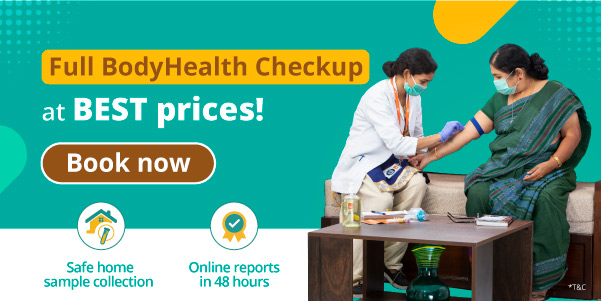
The fight against coronavirus has been going on for more than a year now. We have been living a life of restrictions since March 2020. It was a very difficult year for every one of us. We were constantly hoping that the ‘curve would be flattened’ any day. But every day we only read reports of increasing case-count and death toll.
Just when it seemed that we had lost all hope, in January 2021, the Union Health Minister announced that the COVID graph has finally been flattened with 146 districts not having reported any fresh cases in a week. This news came in conjunction with the onset of COVID vaccination in India. And we all greeted this update with a happy sigh.
But maybe our happiness is short-lived. There is an indication that COVID might rear its head again. Here’s what has been happening recently-
In simple terms YES u can get infected with Covid even after your are vaccinated fully. COVID-19 vaccines are effective in preventing illness from COVID-19, especially severe illness, hospitalizations and death that is they reduce the severity of the disease.
Dr. M.G. Kartheeka, MBBS, MD(Pediatrics)
The dwindling rate of new COVID-19 infections did not continue for long. On 2nd February, India recorded its lowest-ever number of new infections in a day (8635).
But soon after, the caseload began to rise again. And by February 18th, the number of fresh cases rose to 12881 and may continue to increase over the next few days.
When COVID struck for the first time back in early 2020, Mumbai was one of the worst-hit cities. The same pattern is emerging again.
Mumbai has witnessed a steady rise in the number of infections. Municipality officials are traversing the length and breadth of Mumbai to understand the gravity of the situation. In just one day, the case-count went up by nearly 260 new cases. Despite the alarming new trend, Mumbai’s recovery rate continues to be 94% and patients are steadily being discharged.
Officials are considering reintroducing certain restrictions such as strict quarantine and regulation of movement in housing societies. Police have urged people to exercise caution and minimize going out.
While COVID-19 vaccines are highly effective against serious disease and death, no vaccine is 100% effective. As a result, vaccinated people can get infected and may fall ill with COVID-19 despite being up to date with their COVID-19 vaccines and any booster doses recommended for their priority-use group.
Dr. Ashish Bajaj, M.B.B.S., M.D. in Clinical Pharmacology and Toxicology
New mutant strains of COVID are much more infectious than the original coronavirus and have spread across the world and even arrived in India. Even so, the global case count has dropped by 16%. Vaccination is underway. But 130 countries are still to receive the COVID vaccine. The UN is in the process of procuring vaccines for everyone. Major vaccine producers will do their part to ensure that no country is left out.
The only way to defeat COVID and keep everyone safe is through vaccination. More than 94 lakh people have been vaccinated already. We are still in the stage of providing the vaccine to high-risk beneficiaries such as healthcare professionals, and frontline workers. Very soon, India will move to the next stage and start vaccinating people above 50 years of age.
So, now more than ever before when we are close to winning the war against COVID, we have to be cautious. We cannot relax the pandemic restrictions because if we do, the case count will spiral again. So, continue sanitizing, mask-wearing and social distancing and get the COVID shot when your turn comes.
Your health is in your own hands, so, take charge of it.
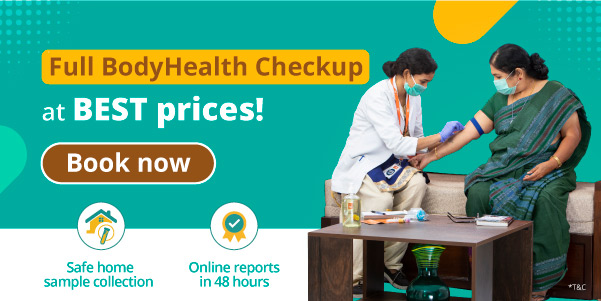
Disclaimer: The information provided here is for educational/awareness purposes only and is not intended to be a substitute for medical treatment by a healthcare professional and should not be relied upon to diagnose or treat any medical condition. The reader should consult a registered medical practitioner to determine the appropriateness of the information and before consuming any medication. PharmEasy does not provide any guarantee or warranty (express or implied) regarding the accuracy, adequacy, completeness, legality, reliability or usefulness of the information; and disclaims any liability arising thereof.
Links and product recommendations in the information provided here are advertisements of third-party products available on the website. PharmEasy does not make any representation on the accuracy or suitability of such products/services. Advertisements do not influence the editorial decisions or content. The information in this blog is subject to change without notice. The authors and administrators reserve the right to modify, add, or remove content without notification. It is your responsibility to review this disclaimer regularly for any changes.
On March 1, the second phase of the vaccination began in India. The first phase covered all medical professionals and front-line warriors. They were the priority beneficiaries as they are exposed to the risk of the COVID infection every day.
The second phase will vaccinate all people over the age of 60 (anyone who turned 60 on or before January 1, 2021, is eligible) and those above 45 with co-morbidities. Elderly citizens are a high-risk group because their immune systems are weaker compared to younger people and also comorbidities can be found in a large portion of the 60+ population.
The second phase of the vaccination drive will also cover all people between the ages of 45 and 59 years who have been diagnosed with comorbidities.
How will you book a slot for yourself or a friend/family member? Read on for all the details.
Last year the Union Government had announced that all those who will need the vaccine doses will have to get themselves registered on Co-WIN. Now Co-WIN is operational. Registrations started on March 1, 9 AM onwards. All you have to do is visit www.cowin.gov.in at 9 AM or afterward to book a slot.
Here are a few pointers for you to remember-
If you are unable to book a slot through Co-WIN, you can opt for on-spot registration at a COVID Vaccination Centre. Slots are likely to fill up quickly and you might have to wait for a while before you can book your appointment. Be patient and wait for your turn.
Continue to observe all COVID precautions before and after vaccination. And if you do not come under the second phase category, make sure you help your family member and neighbours get registered for their COVID doses.
Follow the precautions and take care care of your health.

Disclaimer: The information provided here is for educational/awareness purposes only and is not intended to be a substitute for medical treatment by a healthcare professional and should not be relied upon to diagnose or treat any medical condition. The reader should consult a registered medical practitioner to determine the appropriateness of the information and before consuming any medication. PharmEasy does not provide any guarantee or warranty (express or implied) regarding the accuracy, adequacy, completeness, legality, reliability or usefulness of the information; and disclaims any liability arising thereof.
Links and product recommendations in the information provided here are advertisements of third-party products available on the website. PharmEasy does not make any representation on the accuracy or suitability of such products/services. Advertisements do not influence the editorial decisions or content. The information in this blog is subject to change without notice. The authors and administrators reserve the right to modify, add, or remove content without notification. It is your responsibility to review this disclaimer regularly for any changes.
The COVID vaccination drive is in full swing. From March 1 onwards, all people above the age of 60 and those above 45 with co-morbidities will be eligible to receive the COVID-19 vaccine. This is the second phase of India’s COVID vaccination programme and it will benefit 10 crore people across the whole nation.
The Central government published a full list of hospitals (both private and government-operated) where COVID vaccines will be administered.
The list contains the names of 10,000 hospitals under Ayushman Bharat (also known as Pradhan Mantri Jan Arogya Yojana – PMJAY) and 600 hospitals under the Central Government Health Scheme. Every state also has the freedom to turn any private hospital under State Government Health Insurance Scheme and PSUs into COVID Vaccination Centres. On the very first day, 100 people at every COVID Vaccination Centre are expected to receive the vaccine.
The hospitals outlined in the Union Government’s list pan the length and breadth of India. You will want to find out which is your nearest COVID vaccination Centre. Here is a complete checklist of all the hospitals (under both PMJAY and CGHS) where COVID vaccines will be administered –
This collaboration between private and government hospitals comes in the backdrop of the government’s intention to quickly scale up the vaccination drive.
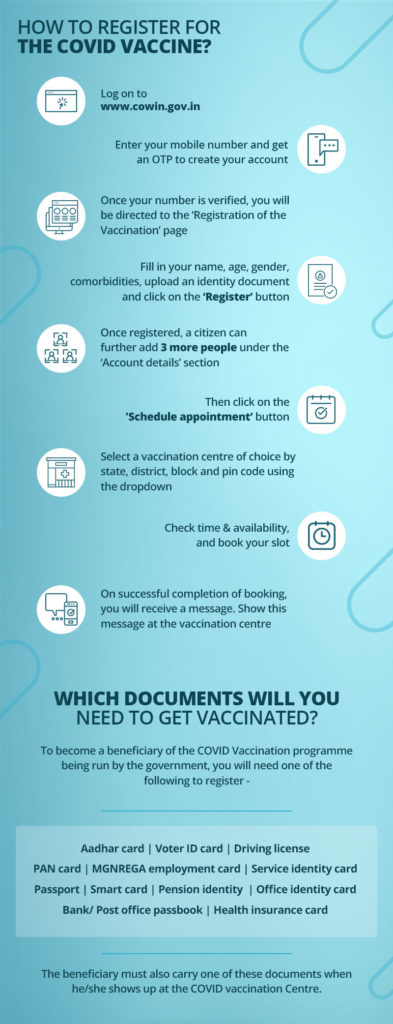
Even after vaccination, you will need to continue observing all the precautionary measures. If you do not fall in the second phase category, be patient and wait for your turn. In the meantime, you cannot relax the COVID protocol. Maintain social distancing, wear masks, sanitize, and wash everything.
Want to take COVID Spike S1 Antibody Test? Click Here!
How is your health today?
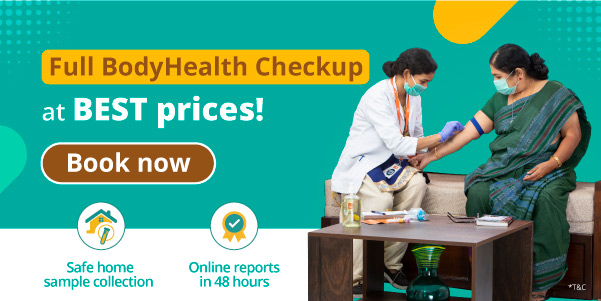
Disclaimer: The information provided here is for educational/awareness purposes only and is not intended to be a substitute for medical treatment by a healthcare professional and should not be relied upon to diagnose or treat any medical condition. The reader should consult a registered medical practitioner to determine the appropriateness of the information and before consuming any medication. PharmEasy does not provide any guarantee or warranty (express or implied) regarding the accuracy, adequacy, completeness, legality, reliability or usefulness of the information; and disclaims any liability arising thereof.
Links and product recommendations in the information provided here are advertisements of third-party products available on the website. PharmEasy does not make any representation on the accuracy or suitability of such products/services. Advertisements do not influence the editorial decisions or content. The information in this blog is subject to change without notice. The authors and administrators reserve the right to modify, add, or remove content without notification. It is your responsibility to review this disclaimer regularly for any changes.
Next Page »« Previous Page